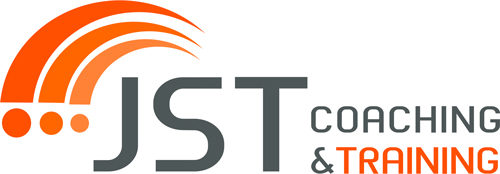I am often asked, “What is the trick to motivating teens to engage in the coaching process and move forward to meet their goals?” There is rarely a simple answer to how to motivate students especially those struggling with ADHD, Executive Dysfunction and Learning Disabilities. In coach training, we teach our students to look beyond the client’s willingness (motivation) to do something and propose the following definition of motivation to include what our teenagers need to move forward.
Motivation is the willingness of someone to do something when equipped with the strategies, tools and support to do so.
That’s what coaching is all about! Helping teenagers, aka students, to equip themselves with the strategies and tools to get “unstuck” and move forward while providing support along the way. Teens don’t want to be told what to do and oftentimes don’t need specific instructions on how to do it.
For example, when a teen tells her parents that she is stuck and having difficulty completing her essay, she is not necessarily asking for her parents to step in and do the work with her or for her. In fact, in my 20 years of ADHD coaching, I hear just the opposite from my teen clients. Some will choose not to say anything to their parents for fear of unintentionally “pulling” them into the actual homework process. When a student is stuck, there are coaching questions that parents can ask to keep the lines of communication open. In our coach training programs, we share the value of asking certain types of questions to move a teen forward. Here are a few examples for you to consider.
Six Coaching Questions to Move a Teen Forward
1. What has you stuck at this point in your assignment?
We acknowledge that the teen is stuck and ask for details. By thinking about the situation and sharing information, teens can often sort out exactly what is getting in their way and find a path forward. This question can be helpful for both teens and parents to better understand the type of support that is required, such as tutoring, a snack, more sleep or a different study strategy.
2. What strategies have you used successfully in the past that could help you now?
This question relates to a positive outcome that the teen has already experienced, which can reduce the feeling of being stuck. “I did it before and I can do it now.” In addition, you can add brainstorming into the conversation to provide a safe space for your teen to share what works and provide a few additional ideas for your teen to consider. Warning – do not say “Why don’t you do this…?” That is pushing your ideas on your teen and questions that start with the word WHY can be taken as judgmental or critical. Let your teen choose.
3. Tell me more about the assignment.
Coaches are trained to focus on the student’s agenda and to be curious. According to the JST Training Team , my favorite coaching statement is “I am curious”. And I am! I want to learn more about my students and their successes and challenges. By stating, “I am curious. Please tell me more about that,” I am showing that I really care about what the student has to say and that I will listen intently to their words and what is behind the words. In coaching, we call that Active Listening.
4. How well do you understand the assignment/directions provided by the teacher?
Students with ADHD or high anxiety tend to rush through the details of an assignment or forget the due dates. The reason for being stuck could be a lack of clarity and not knowing what step to take next.
5. (If the assignment is not clear) How can I help you clarify what needs to be done?
Ask the “how” question instead of stating “I will help you.” You will benefit from knowing exactly what your teen needs rather than jumping in with solutions. Think about the number of times you have made a suggestion, only to be shut down, or shut out. It is possible that your teen needs to slow down and review the directions again, maybe with your support. Remain curious and open to following your teen’s lead.
6. Who can you reach out to for additional help, if needed?
You might be pleasantly surprised at the answer to this. By asking who can help versus “Can I help you?”, your teen might ask you to be the helper. Our coaching students value the opportunity to choose what they want without pressure from coaches or parents. I am not a mind reader, but I do remember when my son was a teenager. He would state that he did not need help from anyone else. The false bravado used to avoid dealing with the fact that he needed help. When your teen makes a statement like this, here is a follow-up question for you. “I hear that you don’t need help right now, but if at any time you did, who would be your go-to person?” There is no pressure to commit to going to a teacher, tutor or friend, but the idea is now planted and available for the next conversation.
A resource to help you understand that teens are smart but stuck
A great resource on being stuck and getting unstuck is Smart But Stuck: Emotions in Teens and Adults with ADHD by Thomas E. Brown. This is a required text in our coach training programs. I hope this adds to your understanding of motivation and getting stuck.
What Happens When You Shift to a Coaching Model?
That’s my question for you. Let me know happens when you shift your questions with teenagers and college students, too. I am eager to read your responses!

